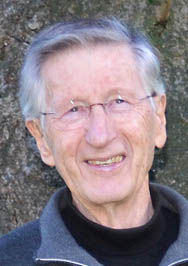Swiss theologian Emily Brunner, in a provocative little book called “Faith, Hope, and Love,” proposes a kind of timeline by which to apprehend these three spiritual principles. He sees faith relating to the past, hope relating to the future and love centered in the present.
Three great religions follow this pattern. In Judaism, Christianity and Islam, significant events in the cherished past are brought into the present through holiday celebrations and weekly services. This dwelling on the past seeks to generate a charitable attitude toward issues in the current world and hope for the future.
But hope is tricky. No matter how deeply we study the past or understand the present, the future is never fully discernable. It doesn’t even exist yet. How can we live on the basis of what does not exist? Would we be better off staying within what we know, painful as it may be?
These are terrific questions, it seems to me. I remember reading a famous Buddhist teacher who said hope is to be avoided, because it takes one out of the present moment into an uncertain future.
Clearly there comes a time when we must accept the present truth with as much grace as we can muster and let go of some of the hopes we harbor. That’s just life’s way with us.
But it also happens that hope brings into the picture something that, at times at least, can overcome or mitigate the present truth, however dire it may be. The other day I read about a woman fighting a terrible disease who wrote something like: “Hope is different from the truth.” The truth she had been given was that her condition was hopeless, but still she kept to her hope that it could be overcome. She held to what did not exist in the face of the grim circumstance that did. She said it helped her get through her ordeal.
A number of studies show that hope can give people a fighting chance against what seem like unbearable troubles. Apparently situations in the present can be influenced by hope in what does not yet exist in the future. I’ve seen it many times, in fact.
And so, I wonder, can a sense of hope do anything to quiet my anxieties about the direction our nation is taking? It appears that economic inequality will mightily increase among us, health care will be less available and more expensive and environmental degradation will have the blessing of the very agencies charged with curtailing it.
Worse, there are alarming indications that our democratic ideals are being swept aside. Peaceful demonstrators are charged with felonies. Members of Congress meet unofficially and in secret to find ways to undermine the FBI and other investigative agencies. Truth is constantly attacked by lies from on high. And the list goes on.
So where is hope for 2018 to come from? Actually, there are a few hopeful hints in the news. Recent elections in several states indicate that people don’t like what is going on. The kindness for those who lost homes in the fires shows goodness still resides in many hearts. But a lot of uncertainty remains, a lot of disturbing uncertainty. That of course, is where hope lives or dies.
Can we hope that what we are going through will generate wisdom and energy for a future based on historic values like freedom and justice for all?
I certainly hope so.
Bob Jones is the former minister of the Guerneville and Monte Rio Community Church.









